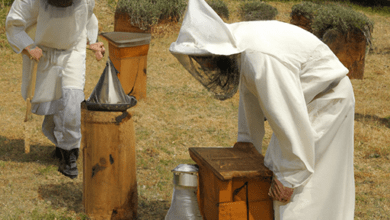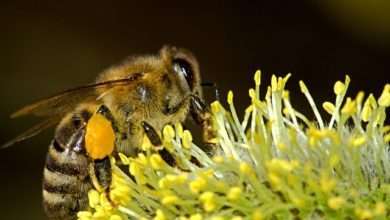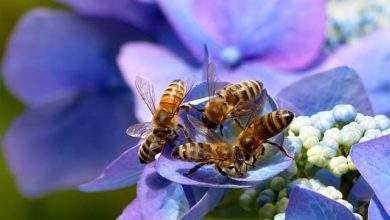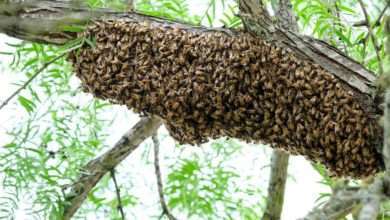Unlock the Buzz-Worthy Benefits: Embrace Apitherapy to Boost Your Beekeeping Success!
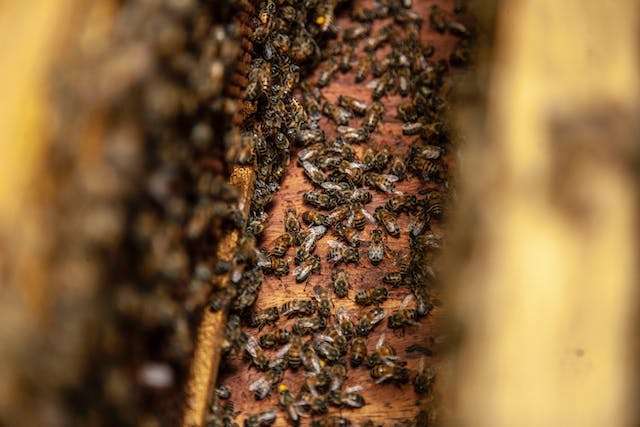
Beekeeping isn’t just about honey production anymore. The ancient practice of apitherapy, the use of bee products for medicinal purposes, is gaining attention in the beekeeping community for its potential to enhance both the health of the bees and the profitability of the beekeepers.
In this article, we will explore the buzz-worthy benefits of embracing apitherapy to boost your beekeeping success.
Definition of Apitherapy
Apitherapy can be defined as the therapeutic use of bee products such as honey, pollen, propolis, royal jelly, and even bee venom to promote health and well-being in humans and animals. This holistic approach has gained popularity in recent years, as people search for natural alternatives to conventional medicine.
History of Apitherapy
Apitherapy has a rich and fascinating history that dates back thousands of years. Ancient civilizations like the Egyptians, Greeks, and Chinese recognized the healing properties of bee products and used them for various ailments.
For example, the Egyptians utilized honey to treat wounds and infections, while the Greeks valued propolis for its antimicrobial properties. The practice of apitherapy continued to evolve through the centuries, and today it has become a well-established branch of alternative medicine.
Apitherapy’s Connection to Beekeeping
Apitherapy and beekeeping are inherently interconnected. Beekeepers have the unique opportunity to cultivate and harvest the very products that form the foundation of apitherapy. By managing healthy and thriving beehives, beekeepers can access an abundant supply of bee products, allowing them to explore the many benefits of apitherapy firsthand.
Benefits of Apitherapy for Beekeeping
- Improved Bee Health: Apitherapy practices, such as using honey and propolis supplements, can strengthen bees’ immune systems, making them more resistant to diseases and pests. This leads to healthier and more productive colonies, ultimately increasing honey production.
- Enhanced Pollination: Bee venom therapy, a component of apitherapy, has been found to stimulate bees’ foraging activity. This increased pollination activity benefits both the beekeeper and the surrounding environment by improving crop yields and enhancing biodiversity.
- Sustainable Beekeeping: Apitherapy encourages beekeepers to adopt sustainable practices that prioritize the well-being of the bees. By focusing on natural remedies and reducing the reliance on chemical treatments, beekeepers can create a healthier and more sustainable environment for their bees, ensuring their long-term success.
Health Benefits
Here are some of the various health benefits that can be derived from incorporating apitherapy into your beekeeping endeavors.
- Medicinal properties of bee products: Bee products, ranging from honey to propolis, have long been valued for their medicinal properties. These natural substances possess a wide array of beneficial compounds that can promote health and well-being. For centuries, beekeepers and traditional healers have turned to bee products to address a variety of ailments, and modern research continues to support their effectiveness.
- Use of bee venom in therapy: Bee venom therapy, also known as apitoxin therapy, is gaining recognition for its remarkable therapeutic potential. It involves the controlled application of bee venom to target specific health conditions. This therapy has shown promising results in managing chronic pain, reducing inflammation, and even treating autoimmune disorders. By incorporating bee venom therapy into your beekeeping practices, you can unlock a whole new level of healing potential.
- Healing properties of honey: Honey, the golden elixir produced by bees, is not only a delicious natural sweetener but also a powerhouse of healing properties. Packed with antioxidants and beneficial enzymes, honey possesses antimicrobial, anti-inflammatory, and wound-healing properties. From soothing sore throats to promoting digestive health, the versatility of honey makes it an essential component of any apitherapy regimen.
- Benefits of propolis for immunity: Propolis, often referred to as “bee glue,” is a sticky substance bees create by collecting resins from plants. This remarkable product acts as a natural defense mechanism for the beehive, protecting it against microbial threats. It is also renowned for its immunomodulatory properties, meaning it can boost the immune system’s response. By incorporating propolis into your apitherapy arsenal, you can enhance your immunity and promote overall well-being.
- Anti-inflammatory effects of royal jelly: Royal jelly, the special food reserved for the queen bee, is a nutrient-rich substance that offers a host of health benefits. One of its most notable properties is its potent anti-inflammatory effects. Research suggests that royal jelly can help reduce inflammation in the body, making it beneficial for various conditions such as arthritis, allergies, and skin disorders. By embracing royal jelly in your apitherapy practices, you can combat inflammation and enjoy improved health and vitality.
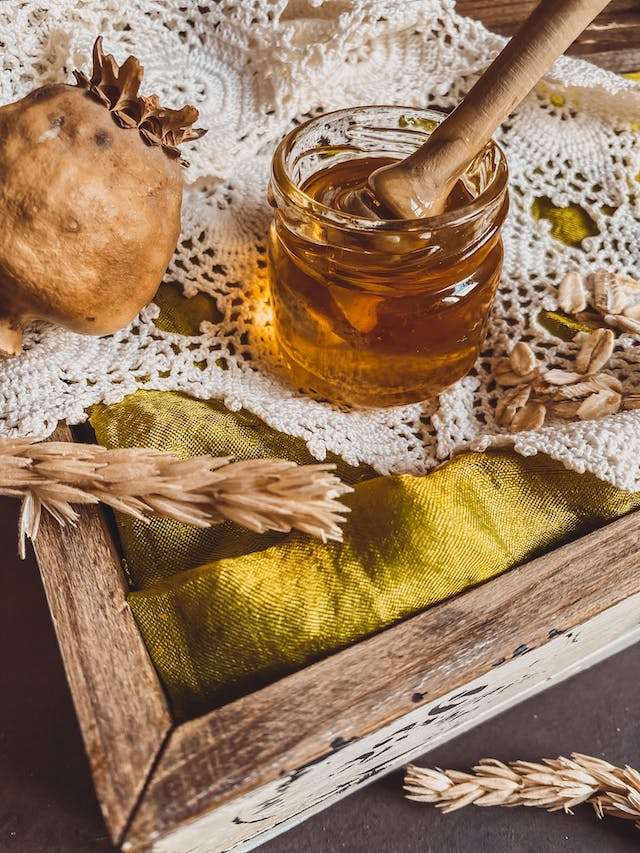
Apitherapy offers a treasure trove of health benefits, ranging from the medicinal properties of bee products to the anti-inflammatory effects of royal jelly. By incorporating these natural remedies into your beekeeping practices, you can not only boost your own well-being but also enhance the success of your beekeeping endeavors.
Hive Management
In the world of beekeeping, effective hive management is crucial for the well-being and productivity of honey bee colonies. As beekeepers, it is important to understand and utilize various techniques and tools to maintain the health and sustainability of our hives.
- Apitherapy in Hive Maintenance
Apitherapy, derived from the Greek word “api” meaning bee, is the practice of using bee products for therapeutic purposes. While primarily known for its health benefits in humans, apitherapy can also be harnessed for hive maintenance. Beekeepers can utilize certain bee products to enhance the overall well-being of their colonies.
- Preventive Properties of Bee Products
Bee products, such as honey, pollen, and royal jelly, contain numerous natural compounds that possess antimicrobial and antioxidant properties. These properties help boost the immune systems of bees, protecting them against common diseases and pathogens. Adding these bee products to the diet of honey bee colonies can support their overall health and minimize the risk of infections.
- Utilizing Propolis in Hive Insulation
Propolis, a resinous substance collected by bees from plants, is widely recognized for its antimicrobial and antifungal properties. Beekeepers can take advantage of these properties by using propolis as a natural sealant and insulation material within the hive. By closing small gaps and crevices, propolis helps regulate temperature and humidity, creating a more comfortable and conducive environment for colony development.
- Bee Venom as a Natural Pest Control
Bee venom, while commonly associated with the occasional sting, can be harnessed as a natural pest control method in hive management. The venom contains a range of biologically active compounds that act as potent antimicrobial agents. These compounds combat harmful pathogens, parasites, and predators, promoting a clean and protected hive environment.
- Sustainable Hive Management through Apitherapy
Apitherapy, with its various applications in hive maintenance, offers a sustainable approach to beekeeping. By incorporating the therapeutic use of bee products, beekeepers can enhance the overall health and resilience of their colonies, reducing the reliance on synthetic chemicals and antibiotics. Sustainable hive management practices not only benefit the bees but also contribute to the preservation of our ecosystem and the production of high-quality honey and other bee products.
Hive management is a critical aspect of successful beekeeping. By embracing apitherapy techniques, beekeepers can tap into the natural properties of bee products to support the health and vitality of honey bee colonies.
Market Opportunities
Below are some of the market opportunities that arise from embracing apitherapy, which not only cater to the growing demand for natural health products but also offer unique avenues for increasing income and promoting sustainability. So let’s dive in and discover the buzz-worthy benefits of apitherapy!
Market Opportunities:
- Demand for apitherapy products: Apitherapy, the therapeutic use of bee products, has gained significant popularity in recent years due to their natural healing properties and minimal side effects. As consumers increasingly seek alternative and natural remedies, there is a burgeoning demand for apitherapy products like honey, propolis, royal jelly, bee pollen, and bee venom products. By capitalizing on this demand, beekeepers can tap into a profitable market niche and diversify their product offerings.
- Selling bee products for health purposes: Bee products have long been recognized for their health-promoting properties. Honey, for instance, is not just a sweetener but also possesses antibacterial, antifungal, and anti-inflammatory properties. Propolis, derived from bee resin, is known for its immune-boosting capabilities, while royal jelly and bee pollen are rich in vitamins, minerals, and antioxidants. By positioning your bee products as natural health supplements, you can attract health-conscious consumers who are willing to pay a premium for such high-quality and sustainable products.
- Potential for apitherapy tourism: Apitherapy tourism, which combines traditional beekeeping practices with wellness tourism, is an emerging market trend with immense potential. Health-conscious individuals, eco-tourists, and wellness enthusiasts are increasingly seeking immersive experiences that offer therapeutic benefits. By providing apitherapy tourism experiences, such as guided hive visits, honey-based spa treatments, or educational workshops on apitherapy, beekeepers can not only generate additional income but also promote awareness and appreciation for the vital role of bees in our ecosystem.
- Impact of apitherapy on beekeeping income: Apitherapy, when integrated into beekeeping practices, can significantly impact beekeepers’ income. Traditional bee products, such as honey and beeswax, already contribute to revenue streams. However, by expanding into apitherapy, beekeepers can diversify their income sources and create value-added products. Apitherapy products, such as bee venom or propolis-based cosmetics, have often proven to yield higher profit margins, making apitherapy an enticing opportunity for beekeepers to boost their overall income and financial stability.
- Marketing apitherapy as a sustainable industry: Apitherapy not only offers economic benefits but also aligns with the principles of sustainability. Beekeeping practices that prioritize the well-being of bees and their habitats resonate strongly with consumers who are increasingly aware of environmental issues. By highlighting the sustainable and regenerative aspects of apitherapy, such as promoting bee population conservation and supporting organic farming practices, beekeepers can position themselves as active participants in a green and conscious industry. This not only enhances their market appeal but also contributes to preserving and restoring the fragile ecosystem upon which our agricultural system relies.
From meeting the growing demand for natural health products to exploring the untapped potential of apitherapy tourism, the benefits are vast. By integrating apitherapy into your beekeeping practices and marketing it as a sustainable and socially conscious industry, you can unlock new avenues for profitability and enhance your overall success as a beekeeper.
Research and Innovation
Now, we will explore the latest research and innovations in apitherapy, highlighting its benefits and future potential in agriculture. So, let’s unlock the buzz-worthy benefits and learn how embracing apitherapy can enhance your beekeeping success!
- Advancements in Apitherapy Research
Apitherapy, the therapeutic use of bee products, has been gaining significant attention in the scientific community. Researchers worldwide have been actively investigating its potential in treating various health conditions. Recent advancements in apitherapy research have shed light on its effectiveness and practical applications.
Notably, studies have revealed the antimicrobial and anti-inflammatory properties of bee venom, propolis, royal jelly, and honey-derived substances. These findings have opened new doors for utilizing apitherapy in areas such as wound healing, pain management, skincare, and even cancer treatment.
- Collaborations between Beekeepers and Researchers
To unlock the full potential of apitherapy, strong collaborations between beekeepers and researchers are essential. Beekeepers, being the guardians of the honeybee populations, provide valuable insights into the production and quality of bee products. Meanwhile, researchers contribute their scientific expertise to validate and expand the applications of apitherapy.
These collaborations have led to exciting discoveries, such as the identification of specific compounds in bee venom that have potent therapeutic effects. By sharing knowledge and resources, beekeepers and researchers can further enhance the effectiveness and safety of apitherapy techniques.
- Innovations in Apitherapy Techniques
Apitherapy techniques have evolved significantly over the years, thanks to ongoing innovations. Beekeepers and researchers have developed novel methods to harness bee products’ potential, making them more accessible and effective. These advancements have opened new doors for applying apitherapy in various industries.
For instance, advanced extraction techniques have enabled the production of standardized bee venom extracts, ensuring consistent quality and potency. Additionally, innovative delivery systems, such as transdermal patches and microencapsulation, have enhanced the therapeutic delivery of bee products, making treatment options more convenient and efficient.
- Future Potential of Apitherapy in Agriculture
Apitherapy’s potential extends beyond human health and wellness, with promising applications in agriculture. Bees play a vital role in pollination, contributing to crop yields and food production. Incorporating apitherapy techniques in agriculture can boost pollination rates, leading to increased crop productivity and improved quality.
Furthermore, bee products, such as beeswax and propolis, have shown great potential as natural alternatives for plant protection and disease control. Their antimicrobial properties can help combat plant pathogens, reducing the reliance on synthetic pesticides and promoting sustainable farming practices.
Conclusion
Apitherapy offers a world of benefits for both beekeepers and individuals seeking natural remedies for various health concerns. By harnessing the power of honey, pollen, propolis, royal jelly, and even bee venom, you can not only enhance your beekeeping success but also improve your overall well-being.
As you delve into the realm of apitherapy, remember to prioritize safety and consult professionals whenever necessary. Explore the endless possibilities that lie within the hive and let apitherapy unlock its buzz-worthy benefits for you!
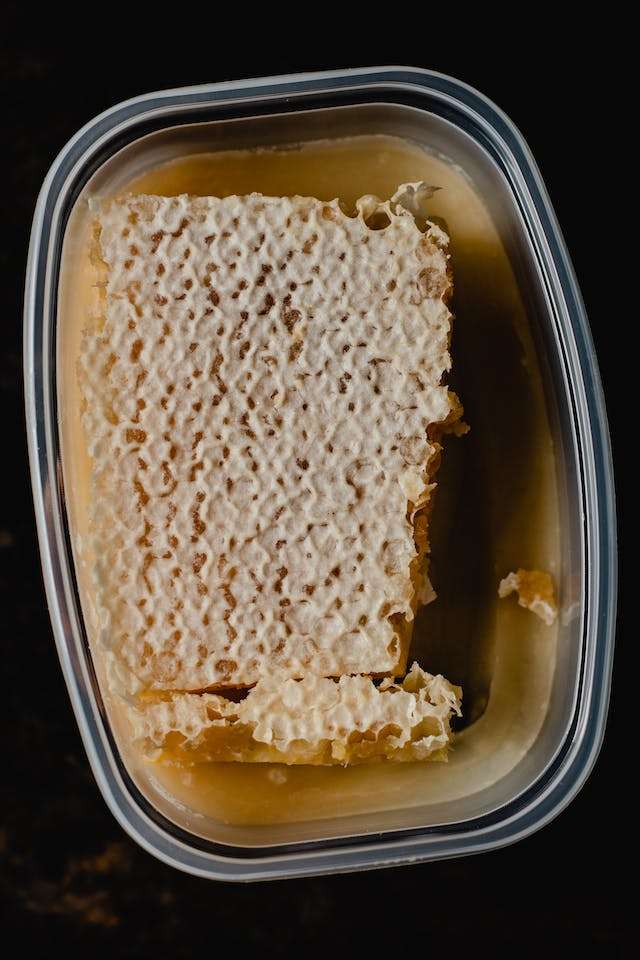
FAQ
What is apitherapy and how does it benefit beekeepers?
- Apitherapy refers to the use of bee products such as honey, propolis, pollen, beeswax, and royal jelly for therapeutic purposes. Beekeepers can benefit from apitherapy as it enhances the overall health and productivity of their honeybee colonies, potentially leading to higher yields of honey and other valuable bee products.
What are some potential market opportunities for apitherapy products?
- Market opportunities for apitherapy products include selling bee products for health purposes, tapping into the potential for apitherapy tourism, and collaborating with healthcare practitioners and wellness businesses.
Are there any specific apitherapy techniques or tools for beekeepers?
- Yes, beekeepers can employ several apitherapy techniques and tools. Some examples include using propolis traps to collect propolis, setting up pollen traps for harvesting pollen, and creating beeswax-based products such as candles or cosmetics. These techniques allow beekeepers to utilize their surplus bee products and add value to their beekeeping endeavors.
Is it necessary for beekeepers to have specialized knowledge about apitherapy?
- While specialized knowledge is not mandatory, a basic understanding of apiculture and the health benefits of bee products is beneficial for beekeepers interested in apitherapy. It is recommended to consult reputable sources, attend workshops or seminars, and seek guidance from experienced beekeepers or apitherapists to ensure the effective utilization of apitherapy techniques.
Can apitherapy help beekeepers manage bee-related diseases and issues?
- Apitherapy can provide supportive measures, but it is not a cure-all for bee-related diseases and issues. However, apitherapy products, such as propolis extracts, have demonstrated antimicrobial properties and can help promote a healthier hive environment. Combining apitherapy practices with careful hive management and appropriate treatments can contribute to overall colony health.
Can apitherapy affect the taste or quality of honey?
- Apitherapy techniques and products used by beekeepers do not impact the quality or taste of honey. However, it is crucial to ensure that any residues from apitherapy materials or substances are minimized during honey extraction and processing, following standard practices for honey production.
Where can beekeepers find more information about apitherapy and its benefits?
- Beekeepers can access information about apitherapy through books, online resources, scientific journals, or through joining beekeeping associations and organizations that provide educational materials and resources on apitherapy. Consulting with experienced beekeepers or apitherapists can also offer valuable insights and guidance specific to apitherapy techniques and benefits.
